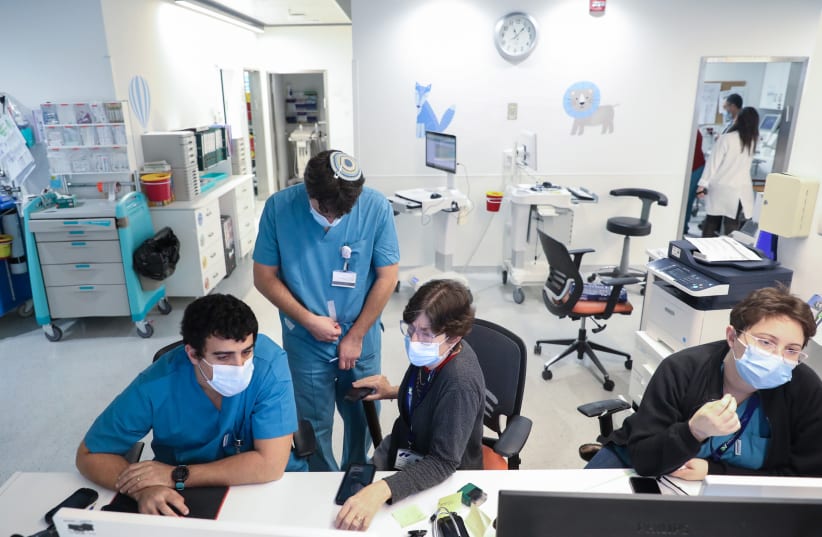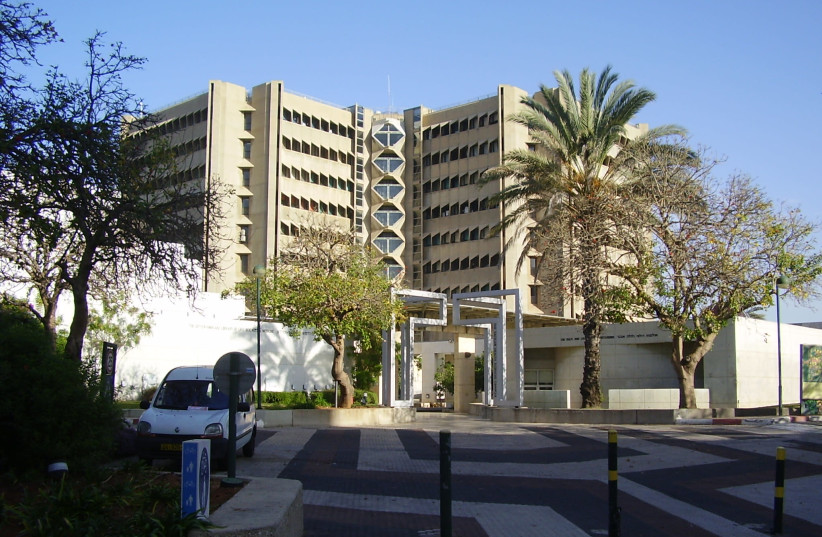The government has decided not to allow foreign students to study medicine in Israel, barring them from Tel Aviv University’s Sackler Faculty of Medicine, Ben-Gurion Faculty of Health Sciences (BGU) in Beersheba and the Technion-Israel Institute of Technology’s Rappaport Faculty of Medicine in Haifa.
The Jerusalem Post learned on Monday that the Council for Higher Education (CHE) and the Health and Finance Ministries’ decision was finally taken. Their decision followed a 2018 recommendation by the CHE due to the large number of Israelis who go to Europe to become physicians because they are not accepted at faculties here.
The graduating classes of 2026 will be the last for the Americans and Canadians who came here for the four-year MD degree in the three aforementioned Israeli faculties.
Tel Aviv University (TAU) has graduated some 2,300 foreign doctors since 1977; BGU has had an international program for 30 years and the Technion, for about two decades. The Hebrew University (HU) of Jerusalem does not teach foreign students, but its HU-Hadassah Braun School of Public Health and Community Medicine has since 1970 welcomed over 1,000 students from over 100 countries.
Dr. Stephen Lazar, TAU’s executive dean, sent a letter to all of TAU’s foreign medical students. “It is with the deepest regret that I must inform you that the Israeli government has directed all foreign medical programs, including American medical programs, to stop accepting new students,” said the letter. “This political decision was made in order to increase the availability of seats in Israeli medical schools for the Hebrew programs, so that many Israeli students will not have to travel abroad for their medical education. TAU president Ariel Porat and dean Ehud Grossman have assured us that enrolled students, including the class of 2026, entering this week, will be permitted to complete their medical studies.”
Many of its alumni, Lazar continued, “are leaders in their fields all over the world. Our graduates have been ambassadors for Israel, and they showcase the excellence of medical education at Israeli institutions. Demonstrated successful cooperation of medical institutions in the US, Canada and Israel were not considered in this political action.”
BGU president Prof. Daniel Chamovitz, who spoke by phone from Denver, Colorado, added, “There was no choice. We need more Israelis to study medicine here. BGU will close the New York office where foreigners applied for admission in Beersheba. Our American supporters will surely be disappointed by the decision, and the medical school will maintain its English instruction to help immigrants and returning Israelis who prefer studying in that language. But those who worked in our international school will teach Israelis instead of foreigners. Nothing will change.”
I think there is no choice but to be in favor, if you think of needs of Israel. I say this with a heavy heart.”
Prof. Rivka Carmi
Chamovitz, an American-born plant geneticist, told the Post: “We asked the CHE three years ago for permission to accept Israelis into our international program with foreign students, but we were turned down twice.” He does not foresee an eventual reversal of the government’s decision to turn down foreign students. He added that because of the significant shortage of physicians in the Negev, BGU will do all it can to increase its graduates and encourage them to remain in the south.
Former BGU president weighs in
Prof. Rivka Carmi, former president of BGU and former dean of its medical faculty, told the Post that the government decision was “very regrettable, but there was no choice. There is a shortage of physicians and a lack of hospitals and professors available for clinical teaching. The Assuta Ashdod University Hospital – the only new medical center to be built in 40 years – is a community hospital with only 300 beds. The lack of hospitals for clinical teaching is the bottleneck. A second hospital, in addition to Soroka-University Medical Center, is planned for Beersheba, but that will be built in a decade, if we’re lucky.”
“I was very enthusiastic about these programs for foreign students when I was BGU’s medical dean and president, but in recent years, I saw the problems of training enough Israeli physicians and realized that there is no choice,” she said. “It was the right decision not to accept foreign medical students in the future. I think there is no choice but to be in favor, if you think of the needs of Israel. I say this with a heavy heart.”
Foreign students in the four-year program still pay as much tuition in Israel as they do in regular medical schools in North America – around $40,000-$50,000 annually. Israeli medical students pay highly subsidized university tuition of some NIS 13,000 a year. Some of the foreign alumni remain in Israel, but most of them return home and act as Israel’s ambassadors, helping Israeli graduates get fellowships and perform post-doctoral work abroad.
Because only 900 Israelis are admitted to Israeli medical schools per year, a large number go to Europe – Hungary, Italy, Romania, Germany, Holland and others – to get an MD degree, said Carmi, while Arabs go mostly to Jordan and other nearby countries. The Health Ministry is planning to increase this to 1,200.
Getting into school at home vs abroad
According to the Central Bureau of Statistics in Jerusalem, acceptance by a medical school – as opposed to other Israeli academic programs – is by far the most difficult to acquire. As most apply after their military service, they have no bachelor’s degree and must study for a seven-year MD degree; then, many continue their studies for their specialties. More than 71% of applicants are rejected. The average score for candidates in the psychometric exam in 2017 was 735, well above the average for any other discipline.
A small number of Israelis studying medicine abroad choose to remain in their country of choice; they settle down in a variety of European countries and are, in essence, lost to Israel. In 2021, 979 Israelis who studied medicine abroad received medical licenses in Israel. In comparison, the Israelis who both studied and received medical licenses in Israel only numbered 770.
The retirement of thousands of physicians who came to Israel from the former Soviet Union in the 1990s have worsened the ratio of doctors per 1,000 population. OECD average is 3.4 per 1,000, and, in Israel, it is an average of 3.1, and in the periphery of the country, it is only about 2.7, said Carmi.
“And, unfortunately, we have no data on how many Israeli physicians who left the clinics and hospitals to work in pharmaceutical companies, computers, health-tech and other positions, earning a lot more. We don’t really know what happens to graduates, but we are losing them,” said Carmi. The long shifts of hospital residents and their low salaries may discourage some in remaining in the profession.
Another factor is that more than 50% of medical faculty graduates are women who tend to choose different specialties than the men do, Carmi added.
Ironically, some years ago, the CHE encouraged the arrival of international students to Israel. It allowed medical school graduates to experience the world of international medicine. It sought international recognition from the World Federation for Medical Education (WFME), which was established in 1972 by the World Medical Association and the World Health Organization. For the purpose of the international recognition process that each country must go through by 2023, the State of Israel must prove that it has an active quality assessment mechanism, which regularly maintains an evaluation process in all medical schools in Israel.
“The Israeli decision is a mistake, as US medical alumni are ambassadors for Israel and greatly contribute to society in general."
TAU alumnus Dr. Douglas Finch
Graduate speaks out
Displeasure towards the decision was expressed by foreign graduates. “I am a proud alumnus of the American Medical Program at Tel Aviv University in 1994 and am now the chief of infectious diseases at Ellis Hospital in Schenectady, New York,” said Dr. Douglas Finch, a specialist in infectious diseases. “The Israeli decision is a mistake, as US medical alumni are ambassadors for Israel and greatly contribute to society in general. There must be a way for Israel to continue to contribute to world health without destroying these programs as if they were a golden idol to be cast aside.”

